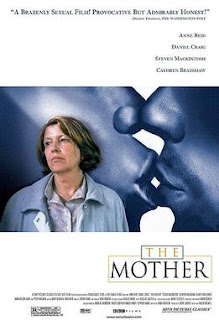Elisabeth Bowen at the Wikipedia: here
 |
| The BLITZ. https://commons.wikimedia.org/w/index.php?curid=4104942 |
Elisabeth Bowen was an Irish-born author, but she did her literary activities within a cultural club in London called The Bloomsbury Group, which had its headquarters in the neighbourhood of the British Museum and whose most famous members were the writer Virginia Woolf and the economist John M. Keynes (whose main idea was that the government had to intervene in the economy to correct the bad effects of the capitalism).
But Bowen isn’t very known here: in Catalan you aren’t going to find any translation, and there are only some of this books in Spanish. If you want to find her works in the library, click here.
The short story that we’re reading is a bit autobiographic, because she was born in Dublin and, although she went to live in England, she used to spend her holidays in Ireland where she had an estate and a house, and because during the World War II she worked in London for a Ministry that monitored the Irish neutrality.
Sunday Afternoon is the typical story in where it seems that nothing happens; but the thing is that what happens is about feelings, and this is harder to see and understand; so, I think that the story, although its language isn’t difficult, needs a slow pace and more than one reading.
SOME VOCABULARY YOU'LL HAVE TO CHECK
lawn, drawing, fanlight, twiddle, diversion, nonchalantly, preposterous, at any rate, pert, relinquish, ruthlessness, askance, last quarter (Mrs Versey beauty), besought (beseech), spell
PERHAPS THESE QUESTIONS WILL HELP YOU TO UNDERSTAND DE TEXT.
Who was Mrs Versey and what was her relationship with Henry?
Why, in your opinion, does Ria think that Maria wants to go to London?
What is the relationship between Maria and Mrs Versey?
Why does Ronald Cuffe think Henry is a bit cynic?
Why do you think Maria looked at her wristwatch several times?
How do you know that Mrs Versey is a very rich woman?
Why does he call her “Miranda”? (Maybe the 'Miranda' in Shakespeare's The Tempest?)
What’s the “new number chained to your wrist”?
HAVE A LOOK AT THESE SENTENCES/PHRASES AND COMMENT THEM
“But nothing dreadful: we are already feeling a little sad”.
“The late May Sunday blazed, but was not warm.”
“The coldness had been admitted by none of the seven people.”
“They continued to master the coldness.”
“He was to tell a little, but not much.”
“… the aesthetic of living that he had got from them.”
“’Are the things there as shocking there as they say... or the are more shocking?’, he went on, with distaste.”
“The girl... seemed to belong to everyone there.”
“This outrage... will not have literature.”
“Their position was, he saw, more difficult than his own.”
“Screen of lilac/Another cold puff came through the lilac.”
“You had lost everything. But that cannot be true!”
“You live with nothing, for ever. Can you really feel that that is life?”
“This little bit of destruction was watched by the older people with fascination.”
“’They are frightened someone would miss the bus and come back.’”
“’How weak you are!’” (said Maria)
“I can drive a car.” (said Maria)
“We shall be nothing but brutes.”
“You are only inside their spell.”
“The trouble with you is, you’re half old.”
POSSIBLE TOPICS TO DEBATE:
-Gap between generations (you can see three in the story)
-Wars and desertion
-When can/must you be a pacifist?































